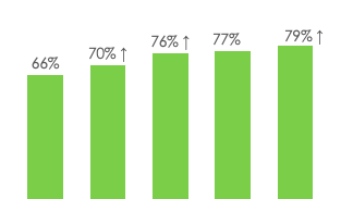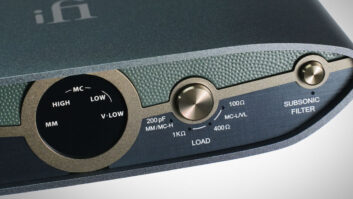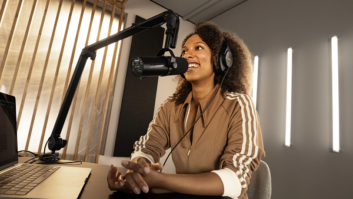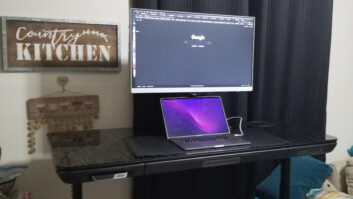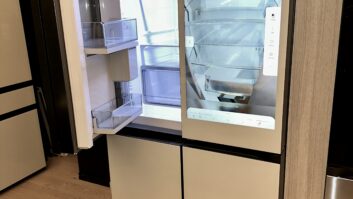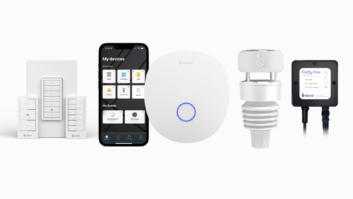Alpharetta, Ga. – Cellphones aren’t replacing separate MP3
players, portable navigation devices (PNDs) or digital cameras.
But younger consumers ages 13 to 17 are more likely than
their elders to use their cellphones cross-functionally, potentially leading to
more cellphone competition with these dedicated devices in the long term, a
MarketSource survey found.
MarketSource, a
market research company and provider of integrated sales and market services,
conducted the nationwide online survey exclusively for TWICE. The company
compiled responses from adults in 505 households, yielding a sample size
considered statistically robust to provide a significance level of +5 at a 95 percent
confidence level, MarketSource said. Respondents had to be cellphone
subscribers and be at least 18 years of age.
In the 505 surveyed
households, MarketSource also interviewed 100 13- to 17-year-olds.
“Generation Y [teens
and tweens] is more likely to have higher expectations than adults from their
cellular devices and also utilize them more cross-functionally as an MP3 player
or digital camera, for instance,” MarketSource said. “Generation X and Y are also
more apt to turn over mobile devices not so much out of necessity but more so
due to new features and product offerings,” MarketSource also found.
Although many adult respondents
own a separate MP3 player, PND or digital camera separate from their cellphone,
the company said, younger consumers consider MP3 playback, high-resolution
cameras and GPS capability as more important features in their next phone than
adults do. (See Table 1.)
Sixty-six percent of 13- to 17-year-olds consider MP3
playback an important feature in their next cellphone purchase, compared with
27 percent of adults. Sixty-eight percent of the younger set consider a
high-resolution camera an important feature in their next cellphone, while 34
percent of adults do. GPS is an important feature for 33 percent of the
17-and-under crowd, while 28 percent of adults think so.
Sixty percent of
adults, in contrast, consider battery life an important factor in their next
cellphone purchase, compared with 27 percent of the younger crowd.
Although their
priorities are different, adults still use their cellphones in great numbers to
listen to music, take pictures, and navigate. Nonetheless, adults also
overwhelmingly use dedicated devices for those purposes, in large part because
the use cases for dedicated devices differs from the use cases for cellphones that
incorporate those capabilities, MarketSource found.
Phone owners who own
a separate MP3 player, for instance, tend to use their dedicated MP3 player rather
than their cellphone to watch video when they’re mobile, presumably because of
screen size and screen resolution, the survey found. On average, adult consumers
who own MP3 players and cellphones and watch video when mobile will watch video
74 percent of the time on their MP3 player and only 26 percent of the time on
their cellphone.
In contrast, adult
phone owners who own a separate MP3 player listen to music on their cellphone proportionately
more than they watch video on their cellphone. On average, 60 percent of their
mobile music listening is done on a cellphone compared with 40 percent on an
MP3 player.
Of the surveyed
phone-owning adults, 72 percent own both a separate MP3 player and an
MP3-playing cellphone, while 28 percent said they use a cellphone as their only
MP3 player and chose not to buy a dedicated MP3 player because of their
cellphone’s MP3 capabilities.
Only 24 percent of
phone-owning adults own both a PND and a navigation-capable cellphone, but different
use cases between the two types of devices also emerge, MarketSource found.
Among the 24 percent, the PND tends to remain in the car, and GPS-equipped
cellphones tend to be used for navigation purposes when the user is on foot,
MarketSource found. These consumers use their phone’s GPS feature seven times a
month on average while using their PND 22 times per month on average.
When it comes to
cross-ownership of digital cameras and camera phones, the survey found that 64
percent of adult cellphone owners own both a dedicated digital camera and a
camera-equipped cellphone. Only 20 percent of adult cellphone owners chose not
to buy a digital camera because they believe their cellphone camera is adequate
for their needs.
Consumers who own
both a cameraphone and a dedicated digital camera prefer to use their digital
camera to take pictures, particularly at planned events such as family events
and vacations, because of better picture quality and other reasons,
MarketSource found.
To take pictures of family events, 56 percent of adult
owners of both types of devices said they used their dedicated camera most of
the time, and only 5 percent said they used their cameraphone most of the time
to take pictures of family events. (See Table 2.)
Sixty-five percent used their dedicated camera to take
vacation pictures most of the time, while only 5 percent used a cameraphone to
take vacation pictures most of the time.
Among adult owners of both types of devices, 74 percent cite
picture quality as a reason for their preference to use a dedicated camera to
take most of their pictures. Fifty-five percent cited their cameraphone’s lack
of quality flash; 53 percent cited the lack of zoom capability; 43 percent
cited a lack of control over such functions as shutter speed and aperture, and 39
percent cited less available memory. (See Table 3.)






